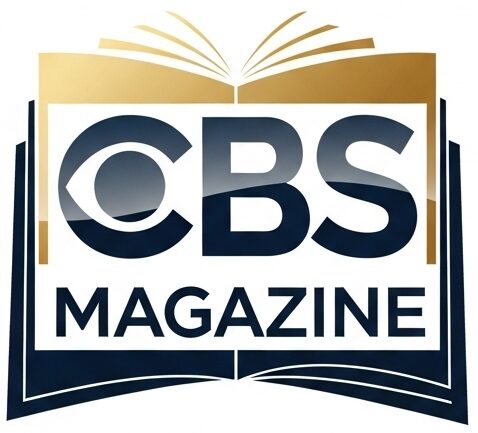In a recent development at the U.S. Department of Health and Human Services (HHS), government lawyers have raised objections to new powers given to a vaccine skeptic appointed by Health Secretary Robert F. Kennedy Jr. The concerns focus on Retsef Levi, a professor at the Massachusetts Institute of Technology, who was appointed to lead a Centers for Disease Control and Prevention (CDC) work group on COVID-19 vaccines. These new powers could impact how COVID-19 vaccines are recommended and distributed in the United States. Below is a detailed look at this issue in simple English.
1. Who Is Retsef Levi, and What Is His Role?
Retsef Levi is a professor who studies operations management at MIT. He has been critical of COVID-19 vaccines, particularly the mRNA vaccines widely used during the pandemic. Levi believes these vaccines can cause serious harm, a view shared by Health Secretary Robert F. Kennedy Jr. but not supported by most scientific studies. In June 2025, Levi was named to an external advisory board for the CDC, which gives advice on how vaccines should be used. In August, he was chosen to lead a special work group focused on COVID-19 vaccines.
This work group has been given new rules that allow Levi to:
- Appoint other members to the group.
- Decide what topics the group will focus on.
- Shape recommendations about who should get COVID-19 vaccines.
These expanded powers have caused concern among government lawyers and health experts.
2. Why Are Government Lawyers Worried?
HHS lawyers expressed concerns that Levi’s new role might violate the Federal Advisory Committee Act, a law that controls how advisory groups like this one operate. According to the law, the CDC, not the work group leader, should decide the group’s agenda, topics, and members. The lawyers suggested limiting the group’s focus to topics that align with the CDC’s mission to avoid legal issues.
In an email sent on August 25, 2025, the lawyers warned that giving Levi so much control could break federal rules. However, the CDC went ahead and published the new rules on August 20 without addressing the lawyers’ concerns. This decision has raised questions about whether the process was legally sound.
3. What Does HHS Say About the Issue?
HHS has defended the decision to give Levi these powers. Andrew Nixon, an HHS spokesman, said that the COVID-19 work group is only advisory, meaning it can make suggestions but does not have the final say. He also stated that CDC and HHS officials are still in charge of the group’s scope, members, and agenda. According to Nixon, all legal concerns have been addressed, and the process follows the law.
4. How Does This Affect Vaccine Access?
Critics worry that Levi’s leadership and the new rules could make it harder for Americans to get COVID-19 vaccines. The work group is exploring topics popular among vaccine skeptics, such as claims that mRNA vaccines contain contaminated DNA or cause the coronavirus’s spike protein to stay in the body. These theories are not widely supported by scientific evidence, which shows that mRNA vaccines have saved lives and caused serious harm only in rare cases.
Health experts, like Dr. Gregory Poland, a vaccine specialist, argue that these changes disrupt the CDC’s usual processes. They believe Levi’s group is pushing ideas based on unproven beliefs rather than following established science. This could lead to recommendations that limit who can get COVID-19 vaccines, potentially putting public health at risk.
5. What Are the Legal Risks?
Ignoring the advice of HHS lawyers could lead to legal challenges. Outside experts, such as Richard Hughes, a lawyer in Washington, D.C., say that failing to follow federal laws like the Federal Advisory Committee Act could weaken the work group’s recommendations. If the group’s actions are found to be unlawful, courts could step in and block its decisions. Hughes is already involved in a lawsuit challenging Kennedy’s decision to remove COVID-19 vaccines from the CDC’s recommended schedule for children and pregnant women.
6. Why Is This Part of a Bigger Issue?
This controversy is part of larger changes at the CDC since Robert F. Kennedy Jr. became HHS Secretary in 2025. His leadership has sparked debate because of his skepticism about vaccines. For example, in August 2025, CDC Director Susan Monarez was removed from her position, leading three top CDC officials to resign. They cited concerns about threats to the agency’s scientific independence.
Kennedy and Levi’s views on mRNA vaccines differ from the findings of most scientists, who say the vaccines are safe and effective. These differences have led to fears that the CDC’s ability to protect public health could be weakened.
7. What Happens Next?
The vaccine work group led by Levi is scheduled to meet soon to discuss COVID-19 vaccines. The decisions made by this group could influence how vaccines are recommended in the United States. If the group’s recommendations are seen as unlawful or unscientific, they could face legal challenges or public backlash. Health experts and the public will be watching closely to see how this situation unfolds.
In summary, the decision to give Retsef Levi new powers at the CDC has raised serious concerns among government lawyers and health experts. While HHS says the process is legal, critics warn that it could disrupt vaccine access and harm public health. The debate highlights the tension between following scientific evidence and addressing the views of vaccine skeptics.






















